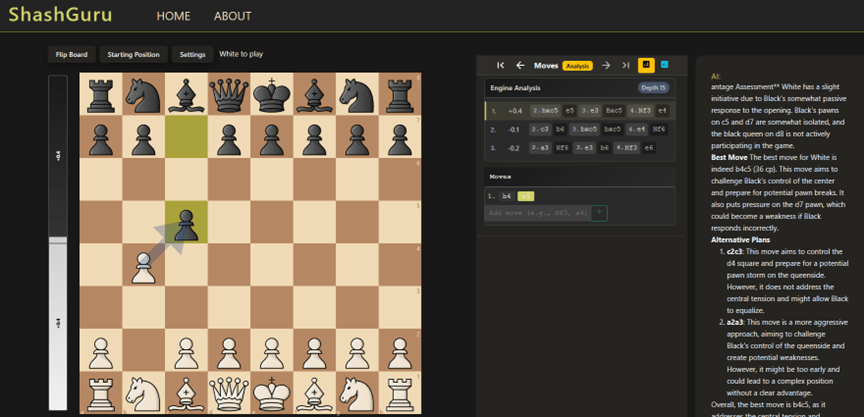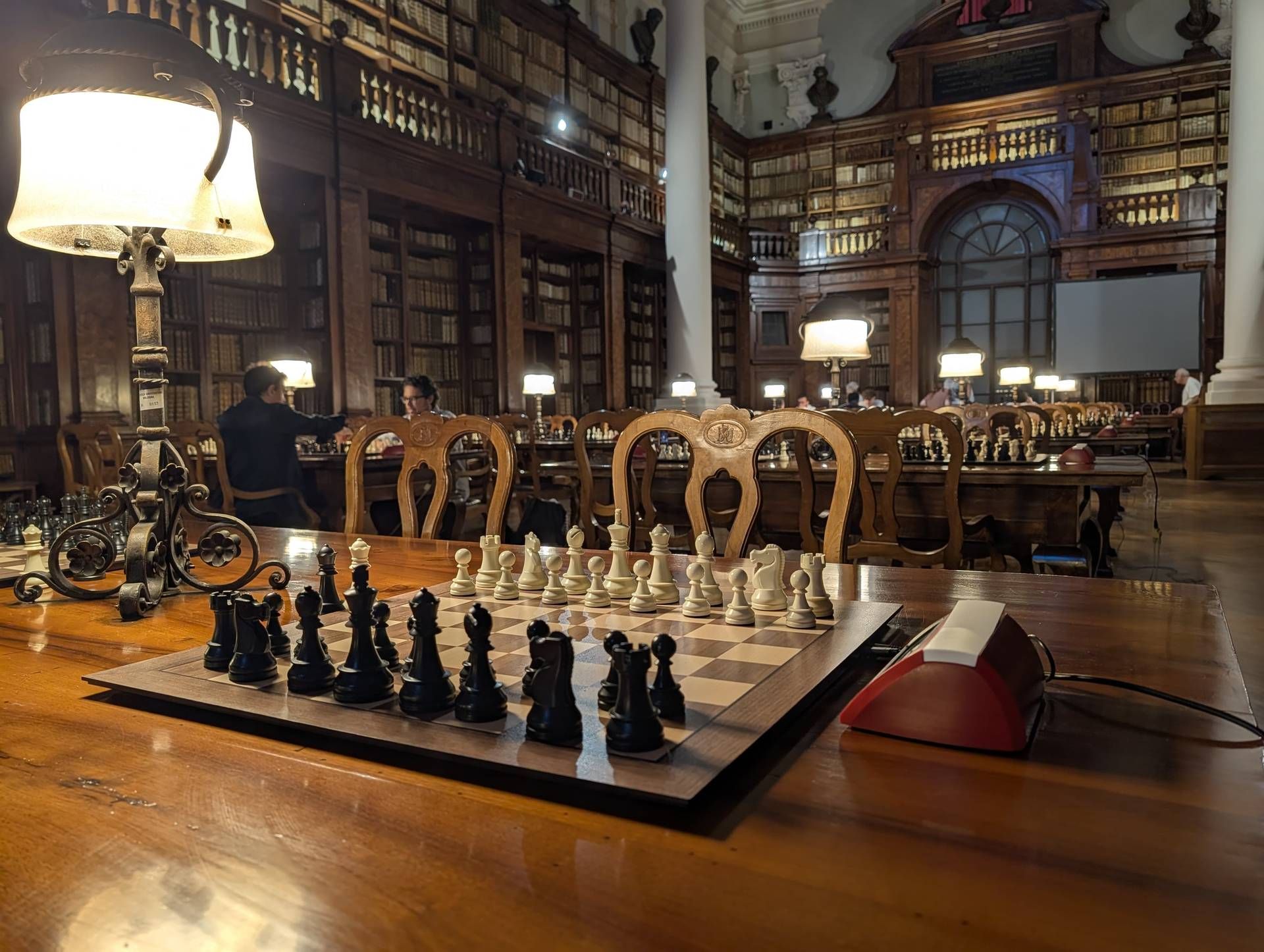Artificial Intelligence Revolutionizes Chess: ShashGuru, the Agentic AI, Debuts in Bologna

Artificial intelligence that doesn't just calculate moves, but explains their strategic significance in real time and in clear language. This is the essence of ShashGuru, a revolutionary chess program developed by Alessandro Libralesso, a student at the University of Bologna, under the guidance of Professor Paolo Ciancarini and with the technological support of Intel. The project, which began as a graduate thesis, marks a decisive step in overcoming the limitations of traditional chess engines, elevating AI from a simple calculator to a fully-fledged educational tool.
A technological hybrid for a new experience
At the heart of ShashGuru is a novel combination: a customized version of the Stockfish engine—one of the most powerful in the world—with a generative language model. " Traditional chess engines tell you what move to make, but rarely explain why ," explained Alessandro Libralesso, outlining the goal of his project . " ShashGuru fills this gap: it interprets the position on the board and explains the strategy in simple terms, just like a good teacher would ."

ShashGuru analyzes a white pawn's move at the start of a game. (Credit: Intel Corporation)
Intel's contribution was crucial to the project's success, enabling the software to run locally on the new Intel Core Ultra 200V processors with integrated NPU . This architecture allows complex AI calculations to be run directly on the PC, ensuring high performance without relying on the cloud. " A player preparing for a tournament doesn't want their analyses to be stored online, " observed Alessandro Palla, Senior Staff Deep Learning Engineer at Intel . " The ability to run these systems on your PC guarantees a level of absolute privacy, combined with sufficient computing power for real-time analysis. "
System reliability was a top priority. Through targeted fine-tuning, the team dramatically reduced the " hallucinations " typical of language models, combining the creativity of the generative model with the analytical precision of the chess engine . The result is answers that are not only clear, but also consistent and reliable.
A unique testing ground: the Alma Mater tournament
For the first time, ShashGuru will be used in a competitive setting: the Alma Mater University Chess Tournament, scheduled for September 12-14 in Bologna. The tournament will feature eighteen university teams, composed of approximately 70 players and instructors from around the world , including the United States, Japan, and Uzbekistan. The event, broadcast live on Chess.com, will offer viewers an unprecedented experience, with AI explaining the "why" behind every move .
In addition to acting as a strategic commentator, ShashGuru will be the world's first AI system tasked with awarding a chess prize . It will analyze games to award the "best game," rewarding spectacular combinations, creative sacrifices, and compelling endgames. A task traditionally reserved for human experts, it will now be entrusted to an AI capable of combining analytical rigor and explanatory power.
A future where AI improves humans
Paolo Ciancarini, professor at the Department of Computer Science and Engineering at the University of Bologna and creator of the tournament, recalled how the connection between chess and computer science is rooted in the history of the discipline itself. " From the experiments of the post-World War II era to the famous 1997 challenge between world champion Garry Kasparov and the IBM supercomputer Deep Blue, which achieved a resounding victory against a human for the first time, chess has been a privileged testing ground for research ," he said. " After a slowdown, the arrival of new artificial intelligence techniques—particularly with the advances developed by Google—has rekindled scientific interest, bringing programs to an even higher level than the best software of ten years ago ." According to Ciancarini, today the challenge is not so much to have "perfect" machines that play better than humans, but to build systems capable of communicating, explaining their choices, and making their functioning transparent, avoiding that "black box" that raises inevitable ethical and reliability questions . " Chess remains an extraordinary field for experimentation, a laboratory where logic, statistics, and creativity intertwine, and which continues to stimulate new research in the age of artificial intelligence ," he concluded. The initiative confirms that " many AI applications serve not to surpass humans, but to improve upon them. This system demonstrates how artificial intelligence can become an educational and creative support, putting the person at the center, " emphasized Alessandro Palla, Senior Staff Deep Learning Engineer at Intel . The Bologna tournament thus transforms into a laboratory for the future, where chess becomes a privileged testing ground no longer just to measure the strength of machines, but to test their ability to put the person, learning, and growth at the center.

Alexander Alekhine, the world-famous chess champion, known for his eternal exploration and belief that every position on the board held infinite opportunities, famously stated : " The greatest mistake in a game of chess is not a dramatic blunder, but the thought that a move is the only possible one ." This maxim, which emphasizes the importance of strategic and creative vision, is now reflected in a new way in the ShashGuru project. Thanks to artificial intelligence, players and enthusiasts will no longer have to rely solely on their intuition, but will be able to explore all possible alternatives and fully understand the consequences and significance of each choice.
Adnkronos International (AKI)





